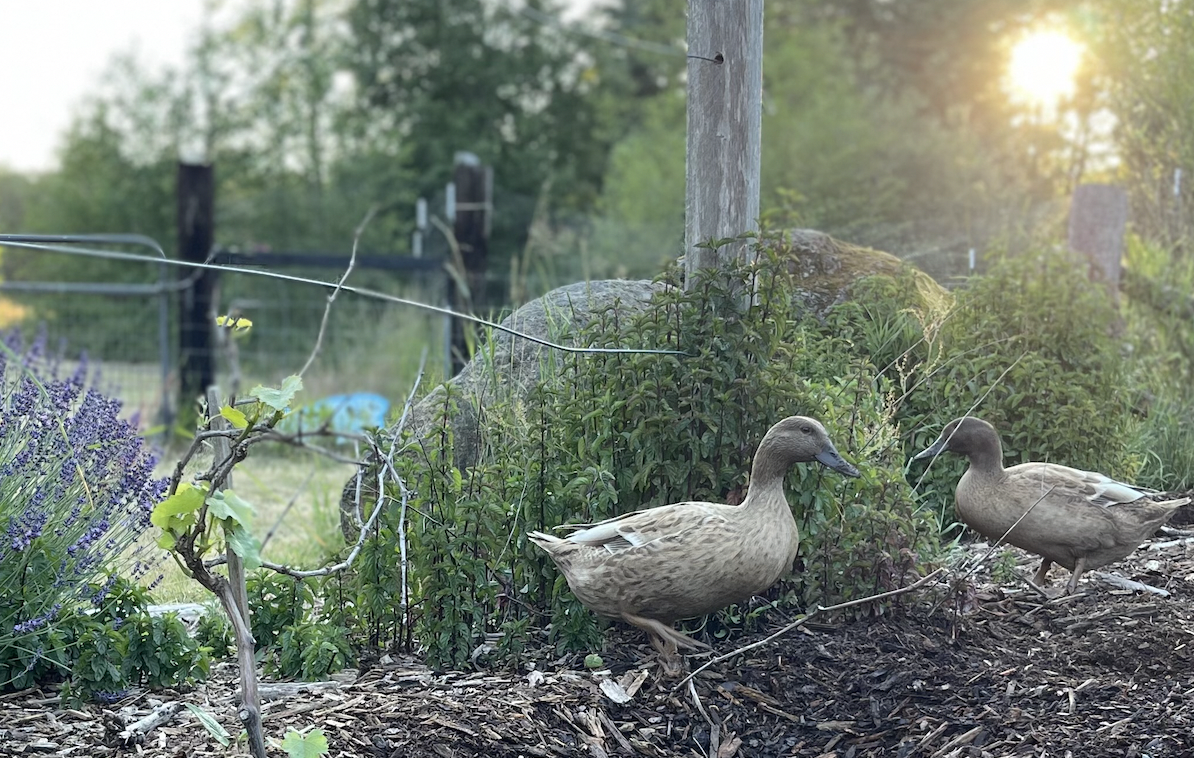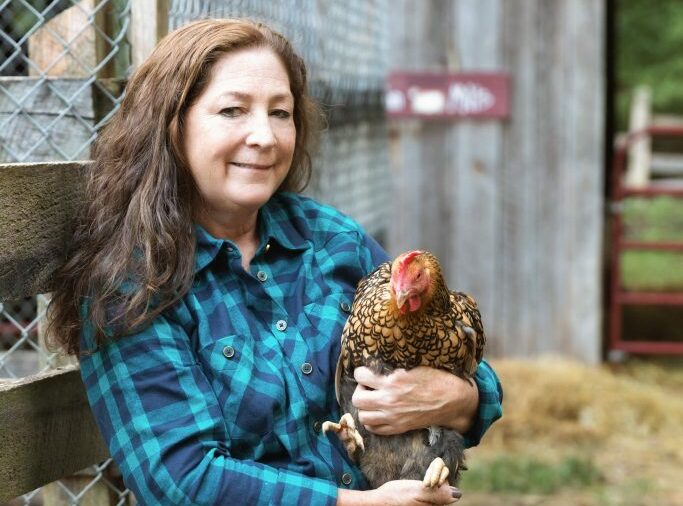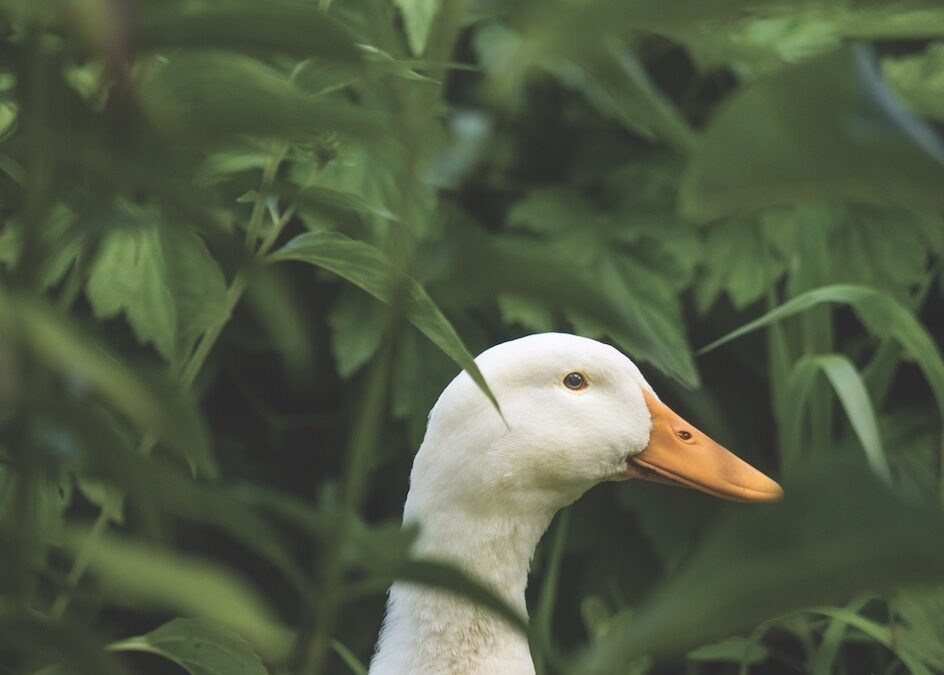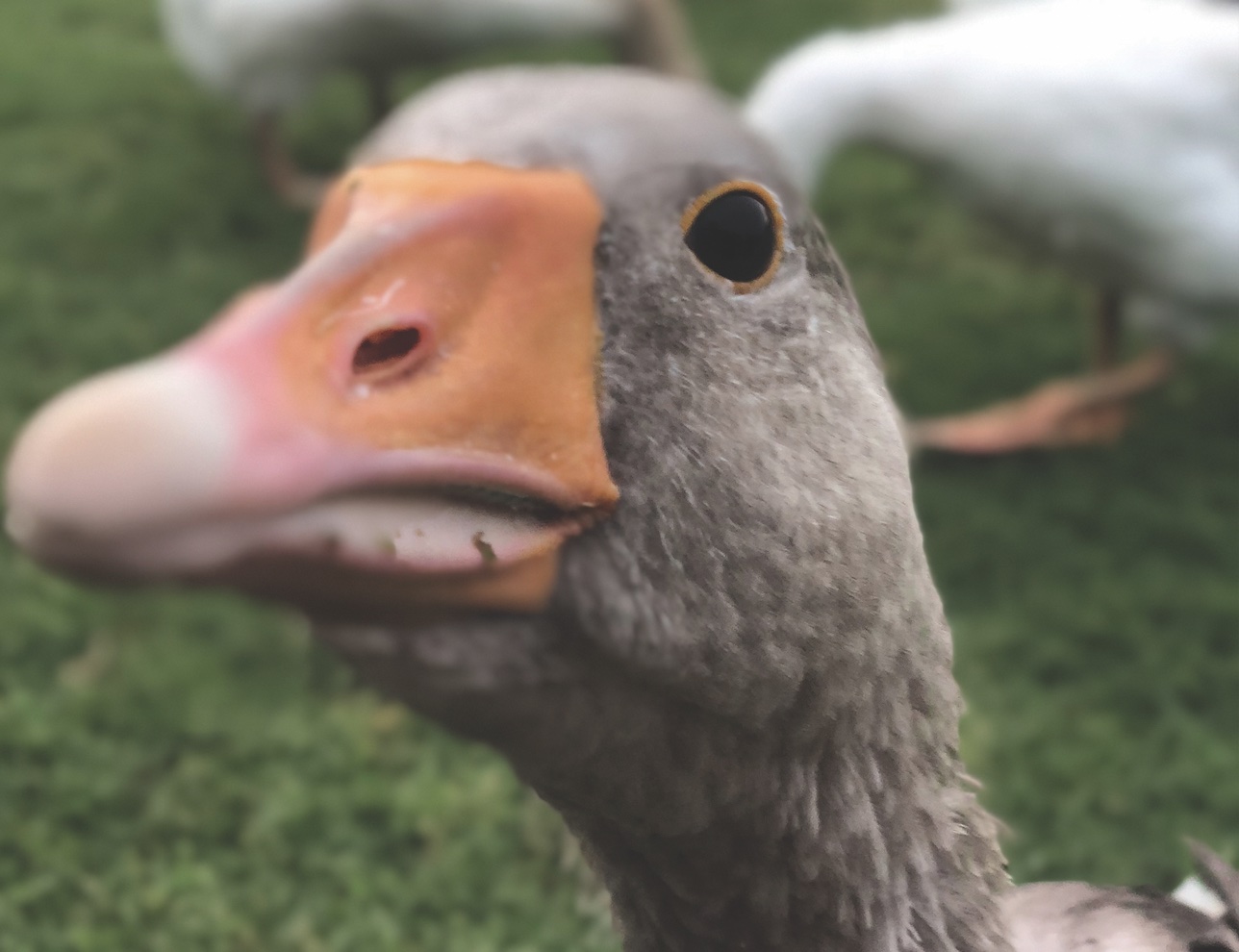Picture this…You plant your garden seeds and starts right on time. You have a brigade full of the best fowl for gardens, and they do a fantastic job of making your life easier as a gardener. The ducks and geese are thorough weeders, and they love to make a meal of all the detrimental bugs they can find. Your chickens wait patiently in the coop for their turn in the garden, never once escaping or ruining any plants before fall clean up. You watch your birds work in perfect harmony with your garden space, all while you sit sipping a sweet tea on the porch.
In reality, this scene is often starkly different, unless you research the best fowl for gardens and make a plan. There are specific benefits that poultry and waterfowl can lend to our garden lives. The success in using them correctly lies in knowing the strengths of each species, and choosing breeds that work for your backyard or homestead.
Chickens
My experience has been that you can plant an open garden and live without chickens, or you can fence a garden and keep chickens, too. It is the nature of a chicken to scratch the dirt for food. They uncover bugs and grubs, earthworms and ticks. But those claw-footed dinos don’t know when to stop! Most of the time, your garden produce will take a dramatic hit if loose chickens are around. They will peck your plants to oblivion, and destroy root systems beyond salvage.
However, the news is not all bad! At the end of your season, chickens are the champs that come in and clean up the garden space. They will softly till the soil, eat the bugs, clean up any unused produce, and enjoy every minute of it. Additionally, before planting, chickens can help get the soil ready for the growing season. They will scratch up and aerate the dirt, drop manure that is high in nitrogen, spread the mulch, and help turn the compost pile. If you save your chickens for garden prep and cleanup, and compost their manure during the growing season, they can certainly be part of the best fowl for gardens lineup.
While some chicken breeds are excellent at foraging, and are therefore better garden helpers, I have found it to be a largely individual trait. I have one Buff Brahma that loves to forage, and another that prefers to beg for treats at the feed shed. Many of the Heritage breeds such as Wyandottes, Australorps, Jersey Giants, and Speckled Sussex are considered to be good foragers, too.
Geese
Geese love grass and will naturally lend themselves out as garden weeding machines. They might decide to eat a bite or two of produce or other tender leaves while working, but the price is small compared to the work they accomplish. They will not scratch up the garden plants while nibbling weeds at the base of the plant. Geese will also feast on slugs and other garden pests when the opportunity presents itself.
The term “weeder geese” is often used for flocks that naturally weed crop land including strawberries, corn, orchards, vineyards, and plant nurseries. However, this is just a small list of the places weeder geese flocks are utilized in agriculture. Weeder geese are fantastic allies on small homesteads and in backyard gardens, too.
Geese are commonly introduced to the crop fields or gardens at the age of 8 weeks. The goslings can still be fed a grower ration without it inhibiting their appetite for weeds. The flock will eat crab grass, Johnson grass, Bermuda grass, and other troublesome invaders. Fencing can be put up to discourage roaming, but mostly the geese will focus on the free food and stay in the field. If you are encouraging your geese to stick around a small garden plot, fencing is probably your best option.
By taking care of the grassy weeds in fields and garden patches, weeder geese allow their tenders to pick crops more easily, enjoy better gardening conditions, reduce manual labor, and allow an overall lower cost to keep the garden clear of weeds. Some breeds to consider are Toulouse and Pilgrim geese.

Ducks
Ducks are slug masters! Ducks will gladly eat the garden slugs, bugs, and weeds. While they have a more respectful nature than chickens in regard to your garden, but they might be known to nibble a few bites of lettuce or taste a tomato. Their large bills are great for digging bugs from around the plants and between the garden rows. Their webbed feet are much easier on the garden, as scratching is not their style.
During the rainy season, mud won’t deter this work force. The ducks will not only take care of weeds, they will happily make use of the puddles in the garden, too.
One breed that is popular with duck keepers is the Indian Runner. These upright, lighter weight ducks forage for bugs, slugs, and weeds quite beautifully. As an added bonus, they even lay delicious eggs on a regular basis for many years.
Important Safeguards for the Best Fowl for Gardens
Taking care of your hard working birds is of the utmost importance when keeping fowl for the garden. These suggestions will help ensure that your weeders and bug eaters are in tip top shape this gardening season:
- Feed: While garden fowl will have access to good food while weeding and munching on bugs, many people will still offer a traditional commercial ration to ensure the flock has optimal nutrition.
- Water: Water is essential at all times. If the flock is out in a field working, make sure they have access to plenty of fresh, clean water during the day.
- Shade: Shade should be offered on sunny days if there is no natural tree cover.
- Fencing: While fencing may not be necessary for some birds, each situation will need to be assessed separately. If you find that you have trouble with wandering birds, put a fence up around your garden.
- Pest Deterrents: Insecticides and herbicides should be avoided when using poultry for garden work.
Remember that each breed of bird has a specific place in the garden. Geese are best suited for weeding, eating invasive grasses, and consuming the occasional garden pest. Ducks will assist with weeds, but they really shine when it comes to eating slugs, bugs, and other garden crawlies. These two fowl will keep your garden neat, tidy, and free of pests. When garden season is over, or when you need to prep a bed for planting, send in your clean up crew of chickens to amend the soil and clear out any remaining vegetation. While it may not work out to be picture perfect, there is an excellent probability that you will want to hire even more poultry workers for the following season.

Janet Garman of Timber Creek Farm is an author, fiber artist and farmers with a love for animals and sustainable living. Janet has a degree in large animal farm management and animal science from the University of Maryland, and helps others learn to raise livestock, chickens, ducks, rabbits, and manage a small farm. Her articles on keeping animals, small farms and homesteading can be found in many popular websites. Janet has is the author 50 Do-it-Yourself Projects for Keeping Chickens, Chickens from Scratch and many books about fiber arts and farming with animals.

50 Do-it-Yourself Projects for Keeping Chickens, by Janet Garman, contains a variety of DIY projects with clear, step-by-step instructions. With many budget-friendly and upcycling projects, you can use items you already have on hand to create a wide range of items for your chickens
Feature photos courtesy of Teddi Yaeger, Photo of chickens in a garden courtesy of Anna Christian, photo of a Pilgrim goose courtesy of Mahlon Hunt, and photo of two Khaki Campbells courtesy of Megan Christison.



